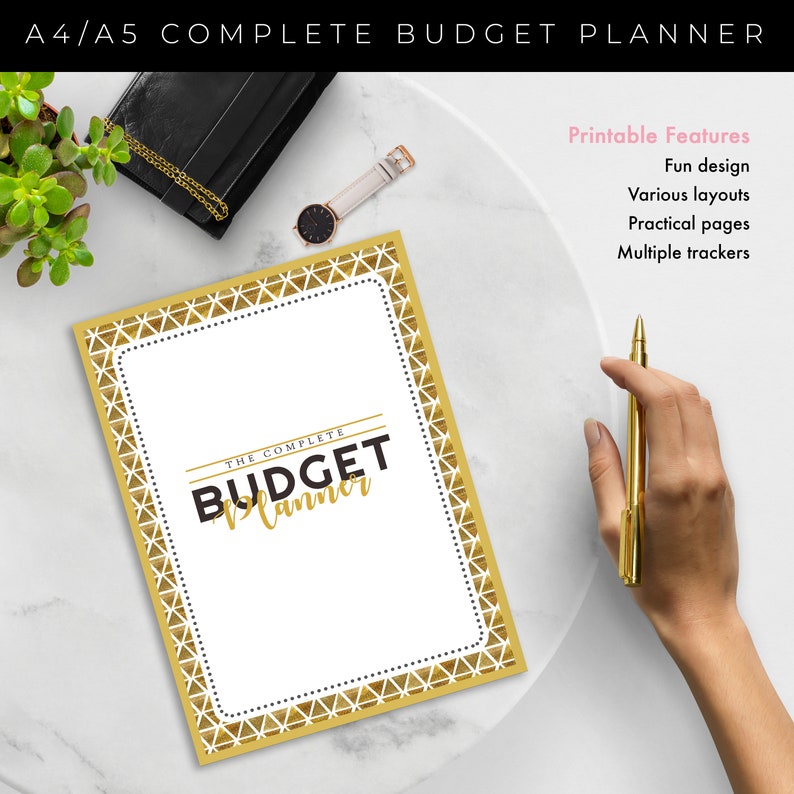
Now how much is left of your income? 4) Split up the money that is left, or set some aside
#Budget planner book diy free
If you pay rent, utilities, or any other fixed expenses these should be subtracted from your income directly so that you can see how much of your income you can actually spend on other things like food or stuff you do in your free time.

2) Know your incomeĭo you work or receive a fixed amount of money each month/week? Use that as your guideline and note down this amount. If you choose monthly, you only have to do it once. If you choose weekly, you will need to repeat these steps approximately four times (for the four weeks in a month).

Okay, first things first: do you want to track your income monthly or weekly? Normally, monthly is easier since income usually comes in the form of some kind of monthly payment (but it’s your choice: whatever is easier for you). Jofelo, for example, uses sturdy leather to ensure your journal never lets you down so you can continue to budget happily. How fun do you think transferring all of your expenses into another journal? It's not, trust me. Second, imagine recording half a year of expenses then having your journal break. This means that after completing your budgeting period, whether it be a quarter or a year, you can remove the pages and start a new journal. This may be a bit pricy but it'll save you in the long run.įirst of all, a company like Jofelo offers refillable journals. Since you'll likely be updating your expenses nearly everyday, try to invest in a sturdy and long-lasting budgeting journal, like Jofelo Leather Journals.
#Budget planner book diy how to
Whether you add this to your notes on your phone or use a notebook just for budgeting, here’s a really simple guide on how to create a budgeting journal and steps to make you the ultimate budgeting mastermind!

It’s all in one place, easy to reach for, and easy to make. One of the best and most fool-proof ways of sticking with your budget is keeping a budgeting journal. For some people, remembering their income and what they spend their money on just like that is easy. You know you’ve done it.) Not to mention those expensive study-guides and textbooks that get you through your exams and cost you a (small) fortune. Living alone for the first time can lead to countless late-night cramming sessions with a trusty double-cheese pizza or one-too-many beers out with your friends to procrastinate instead of writing your paper (Don’t lie. As a student, balancing your money can be one of the hardest things to learn, keep on doing, and do well.


 0 kommentar(er)
0 kommentar(er)
